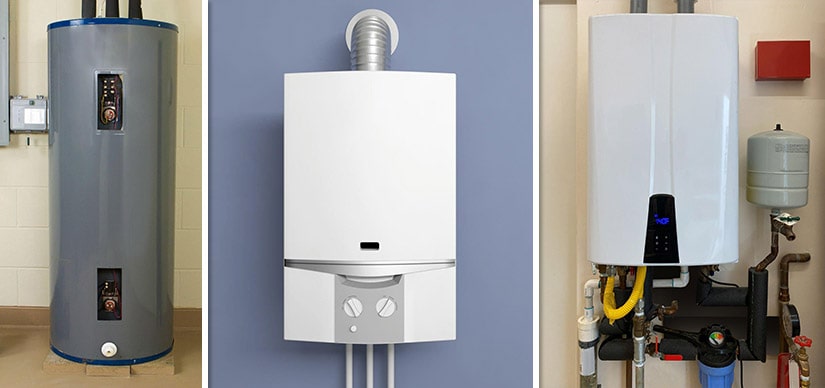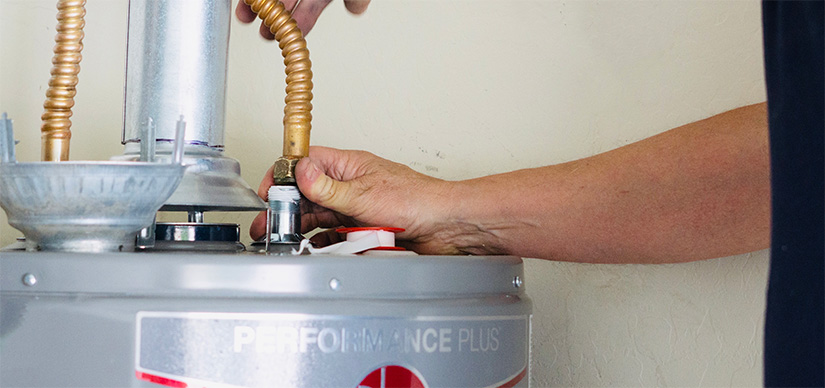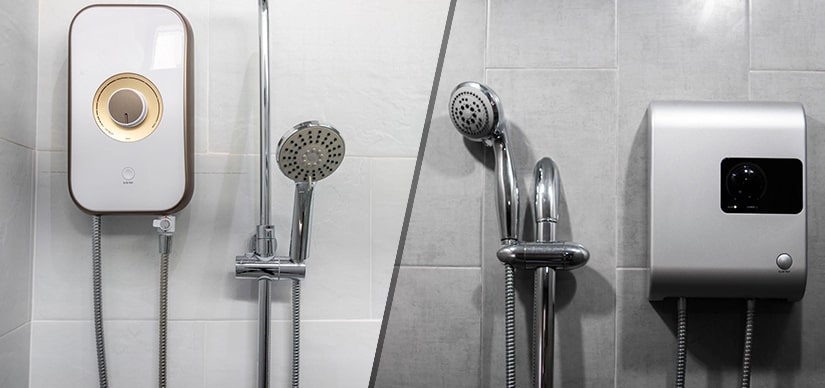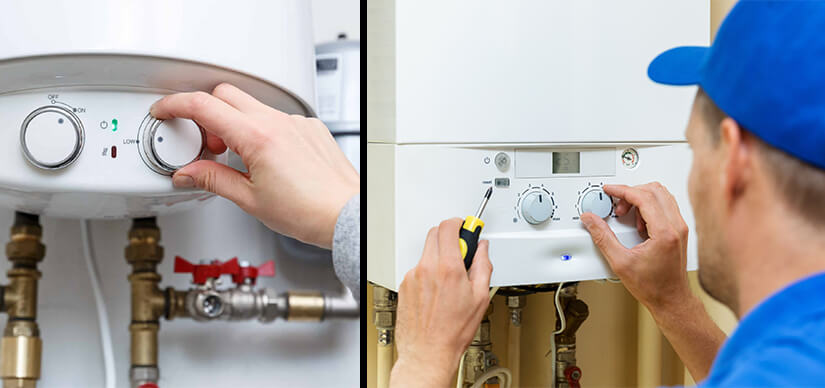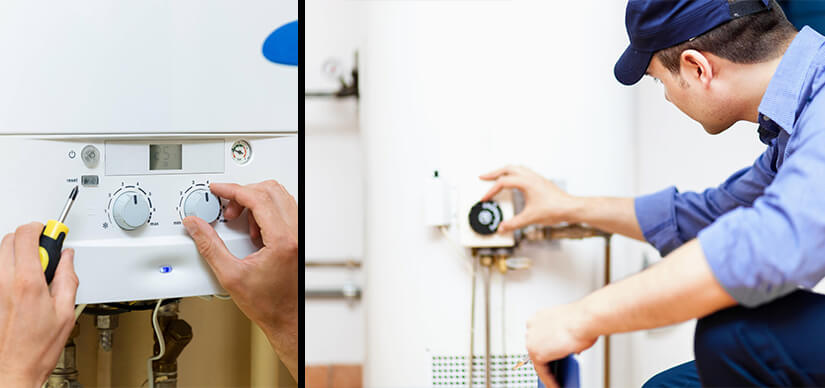Choosing the Right Water Heater Type: A Guide to Find Your Perfect Fit
Nothing soothes the body more effectively during the cold months than a warm, soothing shower. You must, however, pick your new geyser wisely if you’re buying one for your house. Water heaters use a lot of power, so if you don’t choose the proper one, your wallet will take a hit and you’ll have to pay high electricity bills. With the help of water heater replacement services in San Diego.
Pick a water heating system that will not only provide an adequate amount of hot water but will also use energy wisely, saving you money while also improving the appearance of your house. Before making a purchase, we should think about the many water heater kinds that are available, their costs, energy efficiency, and the appropriate size needed for your home.
Conventional water heaters for storage
It offers an easily accessible reservoir (storage tank) with enough hot water for everyday use. However, there are some circumstances where a greater requirement for hot water arises, such as when home guests are present or when there are several hot water applications. Traditional storage water heaters remain the most prevalent form of water heating equipment for houses. A 20 to 80-gallon reservoir of hot water is available at all times thanks to a single-family storage water heater. The dip tube enables cold water to continuously enter the tank by allowing it to go to the bottom, where it is heated to replace the hot water. Storage water heaters frequently run on electricity, fuel oil, natural gas, and propane.
Demand-type or tankless water heaters
These heaters do not need a storage tank to indirectly heat the water. This type of water heater should be able to provide enough hot water without running out if it is suitably sized. By using the Water Heater Installation Services in San Diego you can get a cost-effective water heater since they don’t result in the standby energy losses that storage water heaters do. Cold water enters the appliance when the hot water faucet is opened, travels via a heat exchanger, and is subsequently heated by an electric element or a natural gas burner. Therefore, tankless water heaters provide a steady stream of hot water. There is no need to wait until there is enough hot water in a storage tank to restrict the flow rate.
Immersion water heater
If you’re looking for a reasonably priced solution, immersion water heaters are the most well-liked and practical heating devices that can deliver rapid hot water in the safest and most energy-efficient manner. Immersion Rod Water Heaters are the best option if you are living in a dorm since you can store them anywhere owing to their mobility and small size.
Heaters with a heat pump
These heaters have excellent efficiency and substantial cost reductions since they transfer heat rather than producing it directly to heat water. Homeowners often use heat pumps to heat and cool their houses. Making the greatest choice possible could be made easier with the help of Water Heater Replacement in San Diego. They can be up to three times as energy-efficient as standard electric resistance water heaters. Heat pumps function like a refrigerator in reverse to transport the heat.
A freestanding air-source heat pump water heater uses the heat from the air around it to raise the water temperature in a storage tank above that of a refrigerator. It vents heat into the environment from inside a box. An integrated stand-alone heat pump water heating system has a built-in water storage tank with backup resistance heating elements.
Solar water heating
Solar water heaters, commonly referred to as solar domestic hot water systems, might affordably heat the water in your home. They can operate in any environment, and sunlight serves as their sole source of fuel. Solar water heating systems consist of two components- Storage tanks and sun collectors. In general, there are two types of solar water heating systems: active systems that need circulating pumps and controllers and passive systems that are not as efficient as active.
Selecting criteria
It’s crucial to choose the qualities that are most essential to you because there are many different types of water heaters available. When looking for a water heater do not forget to get assistance from a Professional Plumber in San Diego to make the process simpler.
Fuel
Know your available fuel options before deciding on the sort of water heater to buy. Water is heated using a gas-powered flame or an electric coil in the tank and tankless water heaters. In contrast to heat pump water heaters, which draw heat from the air around them using an electric compressor, solar water heaters use the heat of the sun to warm the water.
Size
There are several sizes of hot water heaters, regardless of their kind. A 50-gallon storage tank heater or a tankless hot water heater with a 7-gallon-per-minute output rate should be sufficient for a household of four.
Efficient use of energy
The amount of electricity or gas a water heater consumes to warm the water is referred to as energy efficiency. Large pieces of equipment, such as water heaters, are tagged with their energy efficiency. An Energy Star water heater can save yearly energy usage by up to 50%, depending on the type.
Costs
The cost of running a hot water heater is determined by how energy-efficient it is. A basic gas water heater normally costs around $250 per year to run, compared to the $450 annual cost of an electric tank water heater. Tankless water heaters typically save homeowners around $108 in running costs annually, according to the U.S. Department of Energy.
Space is crucial
A traditional water heater is large and occupies a sizable portion of your home. Installation of the device requires a decently sized room. A tankless water heater, on the other hand, helps to save space. It is small in size and occupies a lot less room than a typical tank.
Tankless water heaters are more expensive than traditional storage tanks if the cost of money is taken into account. All Star Plumbing & Restoration suggests that the Tankless versions require improved gas pipes, a new ventilation system, and electrical outlets for their fans and electronics. Therefore, it is rather obvious that the price tags differ significantly. Since a tankless unit only activates when necessary and uses less energy as a result, it does save money, but paying upfront money is also not a smart idea. Do take into account the necessities of your particular house and your way of life before choosing.


